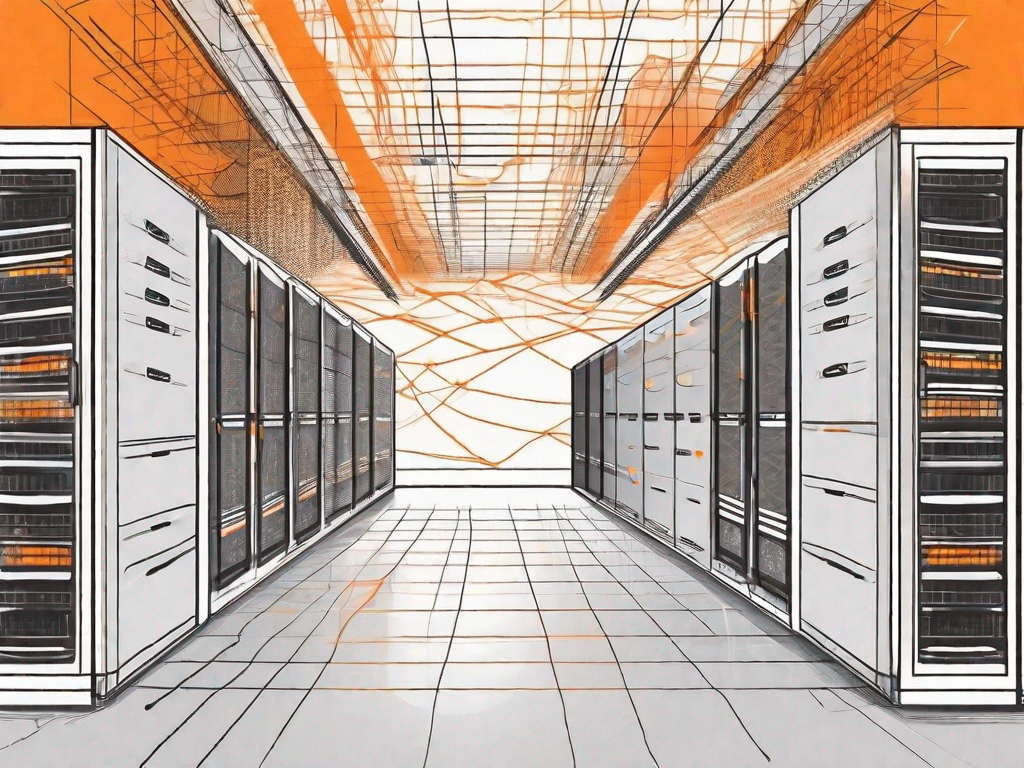.svg)
How to End an Email with Sincere Gratitude
.svg)

In today's digital age, email has become an essential form of communication in both personal and professional settings. While we may spend a great deal of time crafting the body of our emails to convey our messages clearly and professionally, we often overlook the importance of the closing. A well-crafted email ending not only leaves a positive impression on the recipient but also serves as an opportunity to express gratitude and appreciation. In this article, we will explore the various aspects of ending an email with sincere gratitude and provide you with practical tips to enhance your email communication skills.
Understanding the Importance of Ending an Email with Gratitude
Why does ending an email with gratitude matter? The simple answer is that it adds a personal touch to your communication and helps to build and strengthen professional relationships. When you express genuine appreciation, it shows that you value the recipient's time, effort, and contributions. This goes beyond the words you choose; it is about conveying a sense of sincerity and respect.
Research has shown that expressing gratitude has numerous benefits. It not only enhances our well-being but also fosters positive emotions in both the sender and the recipient. In the context of email communication, expressing gratitude can help establish rapport, improve collaboration, and contribute to a more positive and productive working environment.
Did you know that gratitude has been studied extensively in the field of positive psychology? Researchers have found that practicing gratitude regularly can lead to increased happiness, improved relationships, and better physical and mental health. By incorporating gratitude into your email endings, you are not only enhancing your professional communication but also promoting your own well-being.
Why ending an email with gratitude matters
The act of expressing gratitude goes beyond a simple formality; it conveys appreciation and respect for the recipient. By acknowledging their efforts or contributions, you are validating their work and fostering a sense of value and importance. In a professional setting, this can have a significant impact on the recipient's motivation and overall satisfaction in their work.
Imagine receiving an email from a colleague who expresses genuine gratitude for your assistance on a project. How would that make you feel? It would likely boost your morale, create a sense of fulfillment, and strengthen the bond between you and your colleague. By ending your emails with gratitude, you have the power to create such positive experiences for others.
The impact of expressing sincere appreciation in email communication
Sincere appreciation helps to create an atmosphere of goodwill and positivity. When you genuinely express gratitude in your email endings, it can lead to increased trust and stronger relationships. Additionally, it sets a professional tone and shows that you value the recipient's time and effort.
Have you ever received an email from someone who sincerely thanked you for your contributions? How did that make you feel? It likely made you feel valued, respected, and motivated to continue doing your best. By expressing sincere appreciation in your email endings, you have the power to evoke these positive emotions in others.
Common phrases for expressing gratitude in email closings
There are various ways to express gratitude in email closings. Here are some commonly used phrases:
- "Thank you"
- "I appreciate your help"
- "Many thanks"
- "I am grateful for"
- "Your assistance is greatly appreciated"
While these phrases convey gratitude, it is important to personalize your email endings to make them more meaningful and impactful. Let's explore some tips for personalizing your gratitude in email endings.
Tips for personalizing your gratitude in email endings
To make your email endings more personal and genuine, consider the following tips:
Balancing politeness and professionalism in email closings
While it is important to be polite and professional, it is equally essential to strike a balance. Avoid being overly formal or using generic language that lacks sincerity. Find a tone that reflects your personality and the nature of the relationship you have with the recipient.
For example, if you have a close working relationship with the recipient, you could use a more informal closing such as "Thanks a million!" or "You're a star!" This adds a touch of warmth and familiarity to your email.
Avoiding overly casual or insincere language in your closing
While it's essential to strike a balance, it's equally crucial to avoid using language that is too casual or insincere. Generic phrases like "Thanks in advance" or "Many thanks for your time" may come across as robotic or impersonal. Instead, be specific and genuine in your expressions of gratitude.
For instance, instead of saying "Thanks for your help," you could say "I am incredibly grateful for the time and effort you put into helping me with this project. Your expertise made all the difference!" This shows that you have taken notice of the recipient's actions and value their input.
Incorporating specific details or examples of gratitude
When ending an email, consider incorporating specific details or examples of what you are grateful for. For example, instead of saying "Thank you for your help," you can say "Thank you for taking the time to review my proposal and providing me with valuable feedback." This shows that you have taken notice of the recipient's actions and value their input.
By providing specific details, you not only personalize your gratitude but also make it more meaningful and memorable for the recipient. It shows that you have taken the time to reflect on their contributions and are genuinely appreciative of their efforts.
Highlighting the recipient's contributions or impact
Another way to personalize your email endings is by highlighting the recipient's specific contributions or impact. Acknowledge their expertise, efforts, or achievements. For instance, you could say "I am grateful for your exceptional project management skills, which have greatly contributed to the success of our recent campaign."
By highlighting the recipient's contributions or impact, you are not only expressing gratitude but also recognizing their value and the positive influence they have on the team or organization. This can go a long way in building strong professional relationships.
Using formatting techniques to emphasize your gratitude
Formatting techniques such as bolding or italicizing can be used strategically to emphasize your gratitude. For example, you can use bold font for phrases like "Thank you" or "I appreciate your help" to make them stand out. Remember to use these techniques sparingly and thoughtfully, as excessive formatting can come across as unprofessional.
By using formatting techniques, you draw attention to your expressions of gratitude and make them visually impactful. This can help ensure that your appreciation is not overlooked or overshadowed by other parts of the email.
The role of punctuation and capitalization in conveying sincerity
Punctuation and capitalization play a vital role in conveying sincerity in your email endings. Use exclamation marks sparingly and capitalize words intentionally to emphasize your gratitude. It is important, however, to maintain a professional tone and avoid overusing these elements.
For example, instead of saying "Thanks!!!" or "THANK YOU," you could say "Thank you!" or "Thank you so much." This strikes a balance between expressing enthusiasm and maintaining a professional tone.
Common errors to avoid when expressing gratitude in email endings
While expressing gratitude is crucial, there are some common errors that you should be mindful of:
- Avoid using generic or insincere language.
- Do not overuse exclamation marks or capitalization.
- Avoid being overly familiar or casual, especially in professional settings.
- Do not rush through the closing; take the time to craft a thoughtful expression of gratitude.
By being aware of these common errors, you can ensure that your expressions of gratitude are genuine, appropriate, and well-received.
Recognizing and rectifying insincere or generic closings
Recognizing when your email closings lack sincerity is key to improving your communication skills. If you notice that your expressions of gratitude have become generic or insincere, take a step back and reflect on the specific reasons why you are grateful. This can help you infuse more authenticity into your email closings.
For example, instead of using a generic closing like "Thanks for your help," you could think about why you are truly grateful for their help. Is it because they went above and beyond their role? Did their assistance save you valuable time or resources? By identifying the specific reasons behind your gratitude, you can craft a more meaningful and sincere closing.
Sample email closings that express genuine appreciation
To provide you with practical examples, here are a few sample email closings that effectively express genuine appreciation:
- "Once again, thank you for your invaluable support. It is greatly appreciated."
- "Your guidance and expertise have made a remarkable difference. Thank you for going above and beyond."
- "I wanted to express my heartfelt gratitude for your dedication to this project. Without your contributions, we would not have achieved such outstanding results."
These sample email closings demonstrate the power of specific and genuine expressions of gratitude. By using language that is heartfelt and meaningful, you can create a lasting impression on the recipient.
Analyzing the elements that make these closings effective
What makes these email closings effective? They are specific, genuine, and emotionally resonant. They acknowledge the recipient's efforts, contributions, or impact, and convey a sense of gratitude that is both heartfelt and meaningful.
By analyzing the elements that make these closings effective, you can gain insights into how to craft your own email endings that express genuine appreciation. Remember, the key is to be specific, sincere, and considerate of the recipient's contributions.
In conclusion, ending an email with sincere gratitude is an opportunity to go beyond the formalities and connect on a personal level. By expressing genuine appreciation, you can build and strengthen professional relationships, foster positivity, and create a more productive work environment. Remember to personalize your gratitude, avoid common errors, and use formatting techniques wisely. Incorporate these tips into your email communication and observe the positive impact it has on your professional interactions.
Related Posts
Let's
Let’s discuss how we can bring reinvigorated value and purpose to your brand.







.svg)